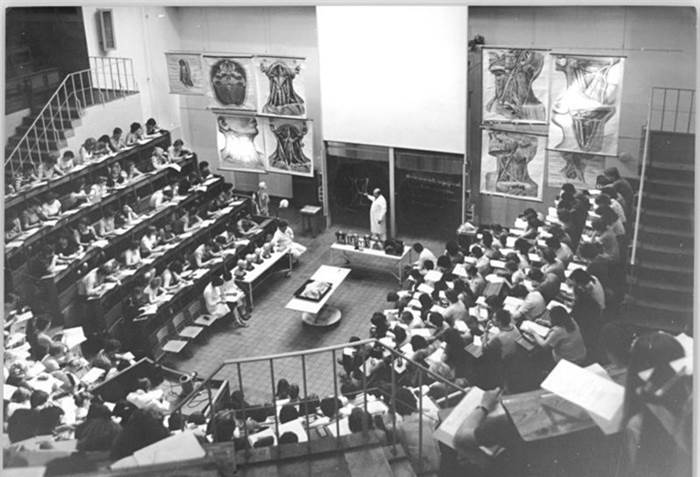
Marc Edwards, MacArthur Fellow, and Charles P. Lunsford Professor of Civil and Environmental Engineering at Virginia Tech, created consternation regarding the polluted water supply of Flint, Michigan by telling the truth. His water research and expertise predicted the lead laden water. He had to buck the politics and the forces at work in revealing his findings. It was similar to his 2003 experience in Washington D.C. He predicted high lead levels in D.C. water and political leaders balked crying foul. He was right — the water was foul. Edwards told the truth as he saw it. He is a determined bucker. He is also, at heart, a teacher.
A Chronicle of Higher Education interview last week reveals his position on teaching and public responsibility: “We teach aspirational ethics. What I teach my students is, You’re born heroic…What you have to do is make sure that the system doesn’t change you, that our educational system doesn’t teach you to be willfully blind and to forget your aspirations, because that’s the default position.”
Professor Edwards builds the reputation of Virginia Tech by teaching innovative thinking, perseverance, and risk taking in a world that reluctantly embraces change. He believes in the public accountability of science and honestly following evidence. Understanding water is a vehicle for personal intellectual and moral growth but a secondary goal. A teacher is what he is.
As an individual plies his or her craft for the betterment of students and reputation is annealed.
In two schools at the University of Southern California non-tenure track faculty have voted to unionize. The LA Times covered the proceedings thoroughly. These paid-by-the-course-faculty are frequently overworked and underpaid compared to their tenure track faculty who typically teach less. They publish the findings of studies and promulgate the results of creative work, sometimes with mild frequency and low impact. These seeming imbalances have caused The Service Employees International Union (SEIU) to step in and organize the faculty. It is the second largest labor union in the U.S. Only the National Education Association has more members.
There is no discussion in the LA Times or anywhere else that the union will improve teaching effectiveness: It is not even on the radar. The SEIU apparently is not interested in improving teaching effectiveness or the reputation of the university. That is not their job, but the job of faculty members and leaders who value “good” work. USC may treat the non-tenure track faculty members as chattel, and in so doing lessen institutional bravado.
The idea that the SEIU should guide working conditions, and therefore the results of academic work for faculty, is hard to swallow. SEIU is not a group of educators by its own definition — “We are the Service Employees International Union, an organization of 2-million members united by the belief in the dignity and worth of workers and the services they provide and dedicated to improving the lives of workers and their families and creating a more just and humane society.” Noble goals and aspirations to be sure, but not a single word about teaching, learning, or reputation. That is the job of shared governance not collective bargaining. The two are confused at the peril of both.
Building walls of separation between faculty and leadership is never an answer to effective work in any university setting. Under-compensating faculty members for their work, or making them day laborers or piece-workers, eventually hurts the institution. If leadership believes that “cheap” teachers are good for the campus then leaders, not faculty at any pay scale, are the weak links in the chain.
As a collective SEIU organizes (that is its’ craft) reputation is weakened as waning leadership watches.
Excellent teaching is often low on the institutional priority list. “Why Teaching is not Priority No.1″, a September 10, 2010 story in the Chronicle of Higher Education, says it clearly with the argument that, “Faculty rewards have nothing to do with the ability to assess student learning.” Students know good teaching and they tell their friends of its presence or absence.
Conducting excellent research and scholarly work will support high impact life changing learning for students if scientists and scholars value good teaching and demand it from the inside out. Artists or performers encourage excellence in their students if they seek it in their own work. Those tutored will follow. The application of knowledge and insight garners respect and admiration from students and the larger community when they see good teachers at work.
If tenured faculty and university leadership do not engage in proactive shared governance to solve admittedly vexing problems, the organization falters and diminished reputation follows.
Teaching is the genesis of reputation for a university.
Photo Credit: echo360.com



